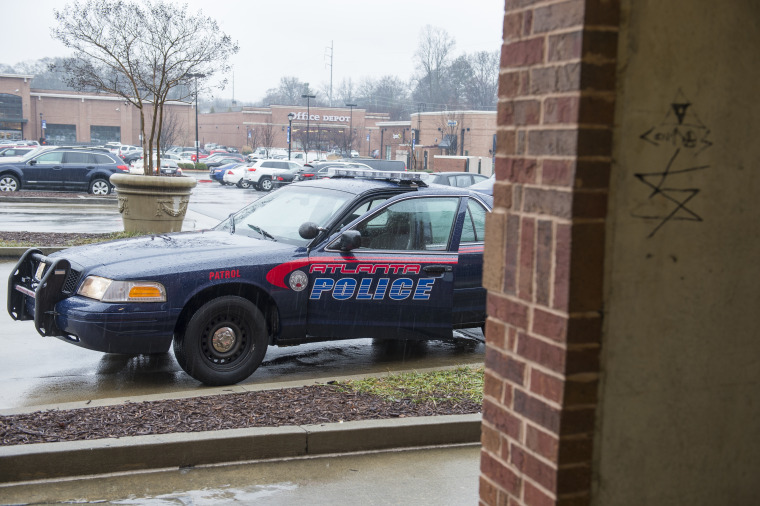ATLANTA — Brandon White was jumped outside an Atlanta convenience store by a group of young men yelling gay slurs. He was punched and kicked, and a tire was thrown at his head.
State prosecutors eventually filed charges in the February 2012 attack. And yet in its reports to the FBI, the Atlanta Police Department said it didn't investigate any hate crimes between January and September that year. And the department didn't submit any information at all for the final three months of 2012.
"For them to say there were no hate crimes in February, we know that isn't true," said White, 24. "That there makes it harder to trust the police."
The FBI's guidelines say an incident should be reported as a hate crime if a "reasonable and prudent" person would conclude an attack was motivated by bias.
An AP investigation found that more than 2,700 — or about 17 percent — of the nation's local law enforcement agencies did not submit any information on hate crimes to the FBI between 2009 and 2014. And that doesn't include the thousands of agencies such as the Atlanta Police Department that had notable gaps in their reporting.
"For them to say there were no hate crimes in February, we know that isn't true. That there makes it harder to trust the police."
Atlanta and its suburbs, home to 5.5 million people, represent one of the most densely populated and diverse regions of the country, but the metro area's hate crime reports during that six-year period were often incomplete or missing altogether. That sporadic reporting contributes to the difficulties the FBI faces in trying to draw a comprehensive picture of hate crimes across the U.S., which would help law enforcement agencies better understand the scope and nature of bias attacks and how to combat them.
In Atlanta, with its pivotal role in the civil rights movement, the lack of a thorough accounting is particularly painful to community leaders still working for equality, who fear abuses by police.
"I am deeply concerned that law enforcement doesn't take these things seriously, that policymakers don't take them seriously and that the majority of our society is oblivious to the problem," said the Rev. Francys Johnson, president of the NAACP in Georgia.
In the case of Brandon White, officials with Atlanta Police said the officer responsible for filing the reports in 2012 retired and the department doesn't have his files. Spokeswoman Elizabeth Espy said information on seven hate crimes that occurred in the fourth quarter of 2012 was submitted to the FBI when the officer's replacement was named in April 2013. March is typically the FBI's deadline for data to be included in the prior year's report.
RELATED: A Bar as a National Monument? New York's LGBT Landmark Vies for Honor
The department's reporting has since been consistent, with 21 hate crimes reported in 2013 and 13 reported in 2014.
Other metro Atlanta agencies, including the DeKalb County Police, Fulton County Police, Gwinnett County Police and Gwinnett County Sheriff's departments, were missing years' worth of data.
The reasons varied, with DeKalb County Police insisting the information was submitted. Gwinnett County Sheriff's said it was covered by the county police and didn't have to submit the reports, although the Gwinnett County Police did not submit reports between 2009 and 2013 either.
A Fulton County Police representative said the department thought the information had been submitted and would be reviewing procedures to ensure that it was.
Meanwhile, hate crimes are not even included in the annual crime report published by the state, which is one of five in the U.S. without a state hate crimes law. Georgia does, however, require local police and sheriff's agencies to report crime statistics. State officials said efforts are being made to encourage agencies who have failed to file reports to do so.
The Rev. Raphael Warnock — pastor of the historic Ebenezer Baptist Church in downtown Atlanta, where Dr. Martin Luther King Jr. once preached — said the lack of accountability on hate crimes is part of a larger "culture of denial" when it comes to racism.
"If we can't deal with the most obvious and overt and heinous expressions of racism, then an honest conversation about institutionalized racism, which maims and handicaps people every day, is not even in the cards," Warnock said.
